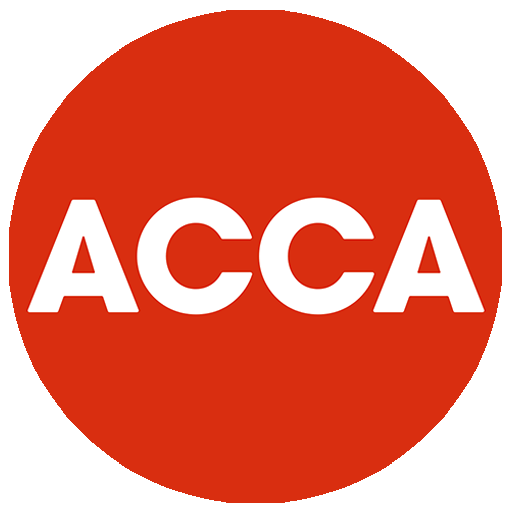
Spring Statement 2025 – Tax and Non-tax updates
Modernising the Tax System – Making Tax Digital
The government confirmed it is pushing ahead with Making Tax Digital (MTD) for Income Tax, with technical notes offering more detail on how the digital filing requirements will expand.
From April 2026, self-employed traders and landlords with turnover in excess of £50,000 will need to join the MTD for Income Tax and Self-assessment (ITSA) program and be prepared to file quarterly returns to HMRC.
Then, from April 2027, those with turnover in excess of £30,000 need to join.
And finally, from April 2028, it drops down again to turnover in excess of £20,000 needing to join.
The aim is to drag more of the tax system into the 21st century, improving accuracy and reducing admin errors—though whether it actually reduces stress for the self-employed remains to be seen. Detailed legislation is due to be introduced before April 2026 to introduce MTD for ITSA. Watch this space…
Targeting Promoters of Tax Avoidance
There’s a fresh consultation focused on nailing promoters of tax avoidance schemes. It’s all about sharpening HMRC’s teeth to take faster and stronger action against promoters who advance unworkable tax set-ups. If this goes ahead, expect to see more naming and shaming, quicker penalties, and fewer get-out-of-jail-free cards for serial offenders.
Behavioural Penalties Reform
There’s also a push to simplify and toughen up behavioural penalties. That means if someone gets caught under-declaring, not filing, or generally fiddling about, HMRC wants clearer powers to penalise quickly. The reform proposals are all about making the system more transparent but also more consistent.
R&D Tax Relief – Advance Clearances
In an effort to tidy up Research & Development tax reliefs, there’s a proposal to allow more use of advance clearances. The idea is to give companies greater certainty upfront, reduce fraud and error, and generally make the system less of a headache. For firms investing in innovation, which should be welcome news—especially if it speeds things up and reduces disputes.
Still No Relief on Employers' NI increases
If you are an employer hoping for some easing of the additional National Insurance contributions announced in Autumn 2024, you're out of luck. The Chancellor didn’t mention them, let alone soften the blow. From April 2025, those rates go up as planned, and that’s a cost many small businesses are still scrambling to absorb.
Beyond Tax – The Bigger Economic Picture
Once we move past the tax headlines, the rest of the Spring Statement had a familiar ring: cautious optimism with a big dose of fiscal discipline. Here are the key non-tax takeaways:
Housing Push – 1.3 Million Homes by 2030
A major announcement was the new housing target: 1.3 million homes to be built by 2029-30. That’s part of a wider drive to reform planning, reduce red tape, and tackle the housing crisis. The figure’s slightly down from the previous 1.5 million ambition, but the message is clear—more homes, more quickly, especially where people actually want to live.
Tax Burden Still Heading Upwards
Despite calls for easing the pressure, the OBR’s forecast shows the UK’s tax burden is set to reach a post-war high—37.7% of GDP by 2027-28. That’s largely due to decisions already made (like the NI increase), but it shows just how little room for manoeuvre there is. Public finances are tight, and interest payments on debt are chewing up a big chunk of the budget.
Welfare Tightening to Plug the Gaps
To offset the bleaker fiscal outlook, the Chancellor announced cuts to welfare spending. These include a halving of the Universal Credit health element for new claimants (from £416.19 to £208.10 a month), changes to PIP eligibility, and a merging of JSA with ESA. All told, these changes are forecast to save £4.8 billion—but critics argue it could hit the most vulnerable the hardest.
No Change on Fuel Duty or VAT
In case you were wondering—no movement on fuel duty, and no major shifts in VAT thresholds either. For now, it’s steady as she goes, although that could change if inflation or consumer spending patterns swing unexpectedly.
Defence and Security Get a Look-In
Given the global backdrop, it’s no surprise that defence spending got a mention. The Chancellor reaffirmed commitments to supporting Ukraine and boosting NATO-aligned capabilities, although exact figures were a bit vague. Still, the direction of travel is clear: defence will remain a top-tier priority.
Final Thoughts
This wasn’t a big-budget giveaway, and it wasn’t meant to be. The Chancellor's tone was one of restraint and long-term planning. For tax professionals and business owners, the main message is this: expect closer scrutiny, higher compliance expectations, and more digital interaction with HMRC. And if you are employing people, that extra National Insurance hit is still coming.
As always, the devil will be in the detail—and the consultations are open, so now is the time to speak up if you’ve got strong views. Meanwhile, keep a close eye on the guidance as it rolls out over the coming weeks.









.png)


.png)


